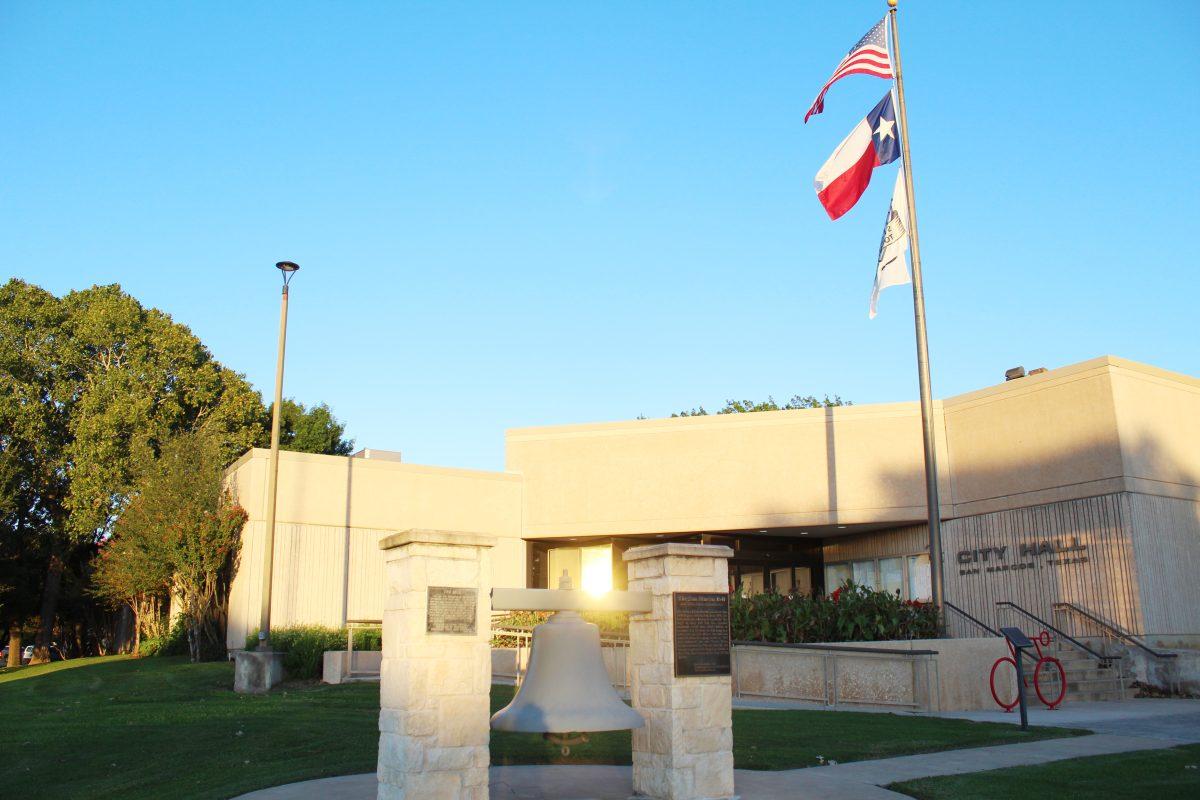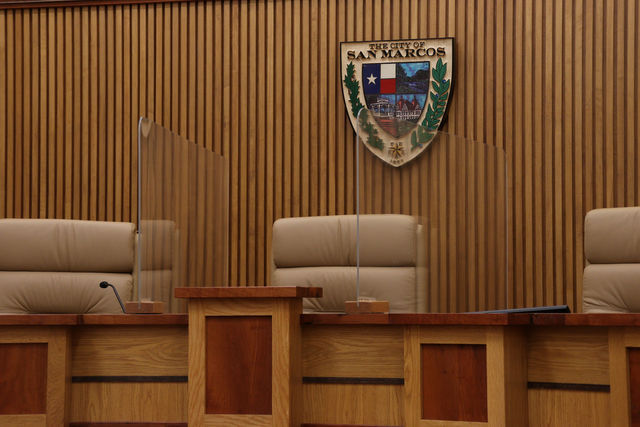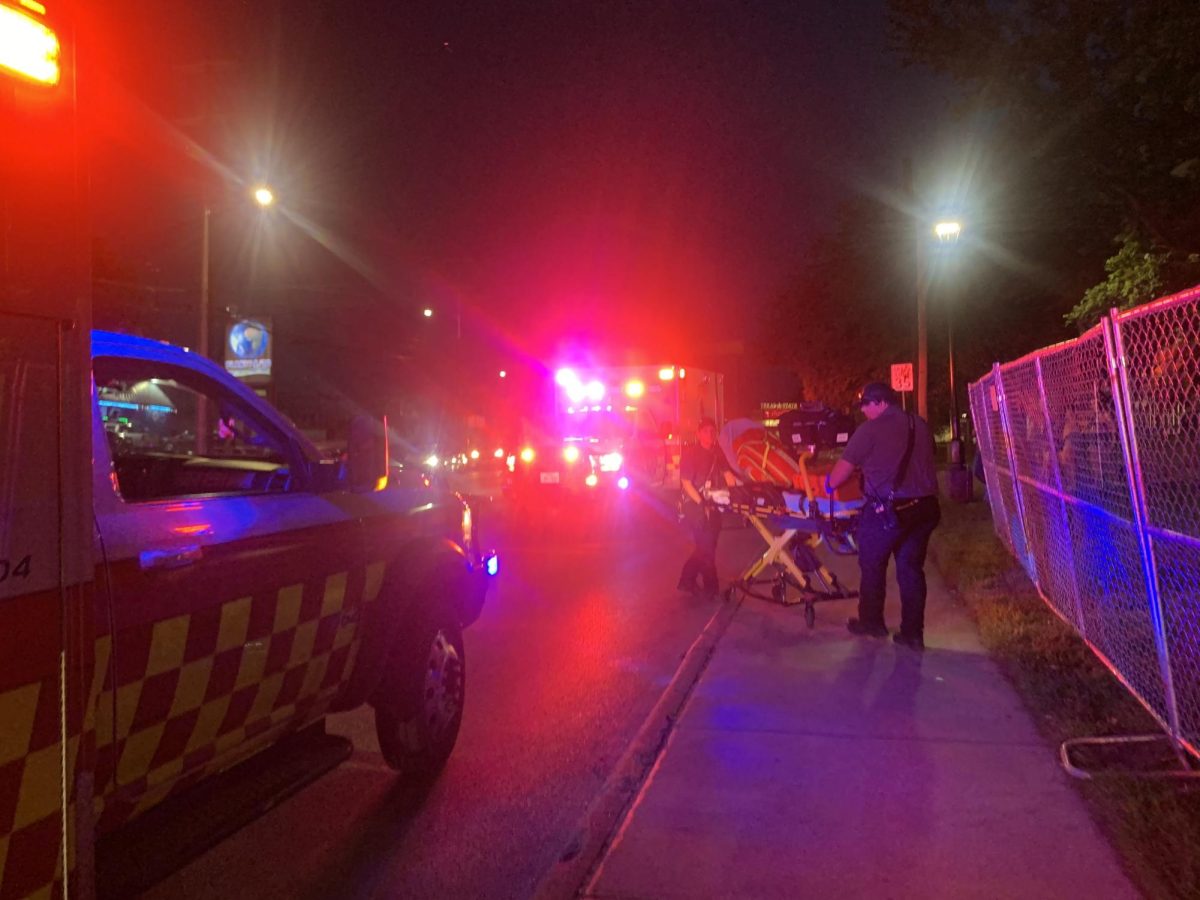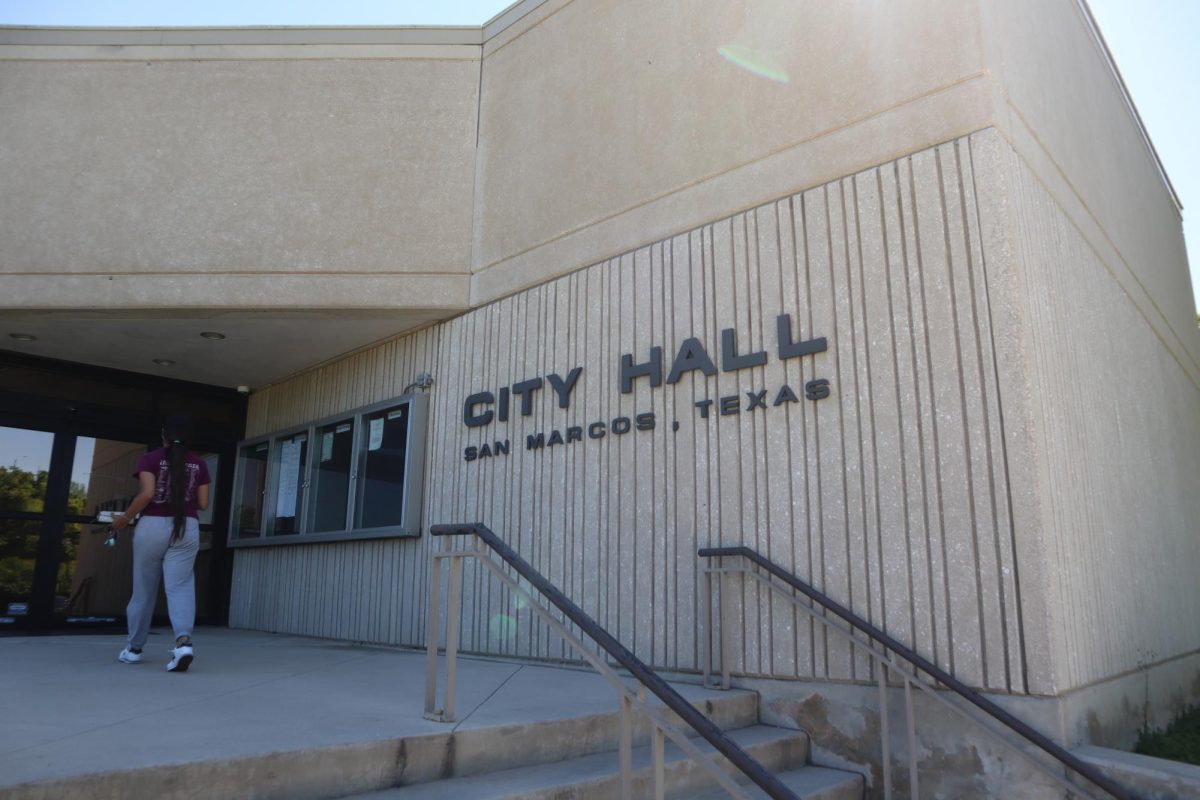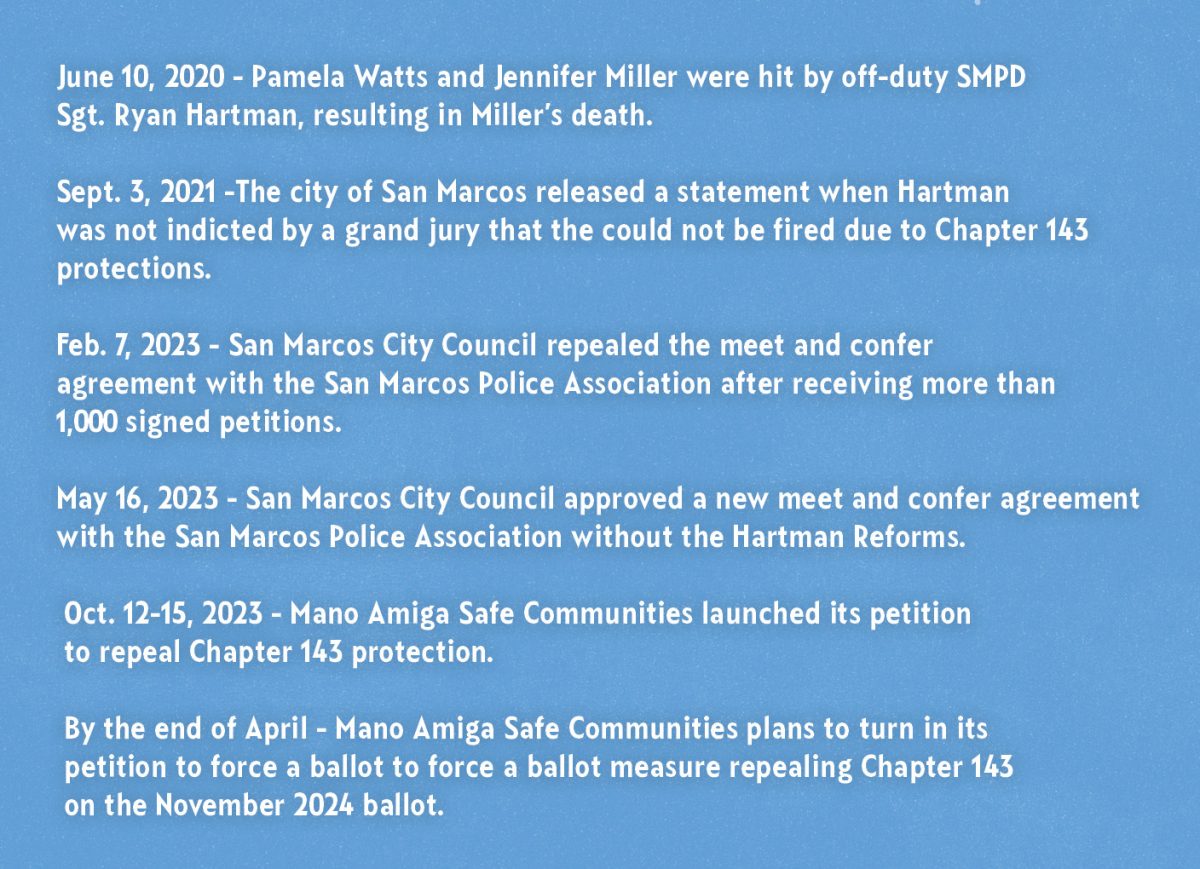A contentious railroad system for shipping manufactured goods could be the first development in the newly annexed 934-acre Heavy Industrial District, created after a heated 5-2 City Council vote on Jan. 15. Across the city, residents have shouted environmental concerns.
The proposed site would be located along State Highway 80 and FM 1984 and would utilize a railroad system to ship goods from manufacturers within the rail park. Katerra, a Silicon Valley-based tech business, is expected to be the SMART Terminal’s first tenant. The proposed development, 1,250 feet away from the San Marcos River, has sparked a city-wide debate over the environmental impacts the construction and facilities could have. No environmental report has been compiled so far.
City Council members Mark Rockeymoore and Jocabed Marquez voted against the designation, with Marquez stating the development could have a negative impact on the environment as well as feedback she has received from citizens on social media.
“I have concerns because the developer said he wants to bring the automotive industry to the area, which will bring runoff and pollution. Once the San Marcos River is gone, it can’t be brought back,” stated Marquez. “They could have built on a different location away from the river. I don’t feel like they’re being mindful of the environment and the river.”
Mike Schroeder, the owner of Texas Transportation Alliance and the developer in charge of the terminal, said he plans to work with the city and exceed environmental requirements for the development.
“We requested annexation and zoning because we want the city to regulate what happens inside are rail park and area,” Schroeder said. “I’ve been meeting with the city and decided that I’m going to exceed requirements by the city. One of the things I’m doing is voluntary water quality measures, which is a way of filtering water before it goes into the river and we’re also going to reduce our impervious coverage.”
Schroeder also said the rail system will reduce environmental damage by decreasing traffic around the area.
“The main purpose is to provide rail cargo services and what we’re looking for is a conversion opportunity and that occurs when a company that is moving cargo long distances converts from moving its trucks to rail,” Schroeder said. “That gets trucks off the highway and has a positive environmental impact because the wear and tear are reduced on roads and (it) reduces the carbon footprint left by heavy traffic.”
Dianne Wassenich, program director for the San Marcos River Foundation, said the foundation is not intervening and trusts City Council to do what’s right.
“I feel comfortable with what is going on and I actually trust the current council to do all the right things because they all care about whether the neighbors get flooded or whether the river is harmed,” Wassenich said. “Myself and our river foundation board who governs our organization believe the council is trustworthy, and we believe the development code is good and the flood rules are good.”
Some concerned citizens have vocalized their concerns about the proposed developments through protest and petition. Texas State student Sabrina Chapa, a geography resource and environmental studies senior, said she started a petition against the development of the industrial park because of a lack of transparency on behalf of developers. The petition has gathered around 500 signatures so far.
“We oppose SMART Terminal and Katerra and any other developments on that land because of the lack of transparency on behalf of the developers, San Marcos City and Hays County governments,” Chapa said. “We are putting our foot down and saying no. We’re going to counter and fight this by whatever means we have to.”
Planning and Zoning commissioner Mike Dillon said he is in favor of the development because it will contribute to growth in San Marcos and will have minimal impact on the neighborhood close by.
“I’d like to see it succeed. It’s not a large neighborhood, it’s rural, so basically I’m in favor. I like what they’re doing,” Dillon said. “They don’t seem to be what I’d call a toxic company. They’re not making things that spew hundreds of gallons of oil or toxic waste every day, and it does seem to be cutting-edge which I like very much.”
Dillon said the environmental research is still ongoing. According to the city, no environmental report has been done so far on the project’s potential impact.
“That’s still in front of us and we have a nice code that’s just come up. We have very good rules and regulations that are in place and we’ll have to see how that works,” Dillon said. “I think people are paying attention to that now and I’m going to trust the rules and regulations we have on the book. I think there’s enough concern that the development will occur and it would be a good development.”
Assistant city manager Steve Parker said the development will have some positive impacts on the city and minimal effects on the environment since being inside city limits requires the development to adhere to certain standards.
“They would have to adhere to all of our water quality standards, so they have to mitigate and treat water that flows across that property before it leaves the site, but with this annexation, we’re able to negotiate what types of development can go into this project,” Parker said. “That’s one of the lists we’re working on for the next meeting, (…) things city council or citizens wouldn’t want to see on a site like that which could contaminate the river.”
According to Parker, the list would include petroleum processing plants, chemical plants, smelting of iron and zinc plants, paper mills with odor.
The final hearing for the proposition will be read during City Council’s meeting, Jan. 29 at 6 p.m. in City Hall.
The University Star will continue to follow this story.






